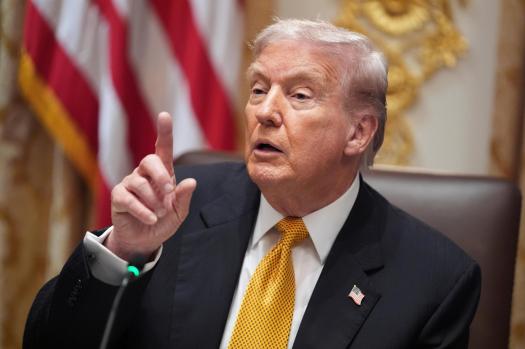UPDATE: In a striking reminder of past perspectives on drug policy, Donald Trump’s 1990 call for drug legalization resurfaces as the U.S. grapples with a devastating opioid crisis. During a luncheon in April 1990, Trump stated, “We’re losing badly the war on drugs,” emphasizing the need to “legalize drugs to win that war” and diminish profits for drug traffickers.
This urgent commentary highlights the escalating drug-related deaths in America, particularly driven by synthetic opioids like fentanyl. According to the Cato Institute, the U.S. has expended over $1 trillion on drug enforcement since the 1970s, yet the crisis has worsened. The last two decades have seen a troubling surge in overdose deaths, raising questions about the effectiveness of ongoing prohibition policies.
In a 1991 interview, renowned economist Milton Friedman echoed similar sentiments, comparing the current drug situation to the disastrous effects of alcohol prohibition in the early 20th century. Friedman warned that prohibition leads to increased violence, corruption, and health crises, stating, “Under drug prohibition, deaths from overdose… have gone up.”
Trump’s recent remarks during an October 15 press conference reflect a stark shift from his earlier views. He claimed, “Every boat that we knock out saves 25,000 American lives,” a statement critics label as misleading and lacking evidence. This policy of aggressive interdiction has raised alarms about due process and the effectiveness of targeting alleged drug operations.
As the opioid crisis claims more lives, it raises an urgent question: Should American drug policy undergo a significant overhaul to prioritize treatment over incarceration? Advocates argue that returning to the principles Trump espoused in 1990 could lead to a more effective approach in combating drug abuse and associated violence.
The call for change resonates deeply amid the ongoing struggles of families affected by addiction and loss. According to the American Immigration Council, from fiscal years 2019 to June 2024, American citizens comprised 81.2% of those apprehended for smuggling fentanyl at southern U.S. ports. This statistic underscores the complexity of the drug crisis and the need for comprehensive reform.
As the nation reflects on Trump’s original stance, the question lingers: Will policymakers muster the courage to embrace a new approach to drug legalization and public health? In a landscape where traditional methods have failed, the time for reassessment is now.
Stay tuned for more updates on this developing story as experts and officials weigh in on the future of drug policy in America.







